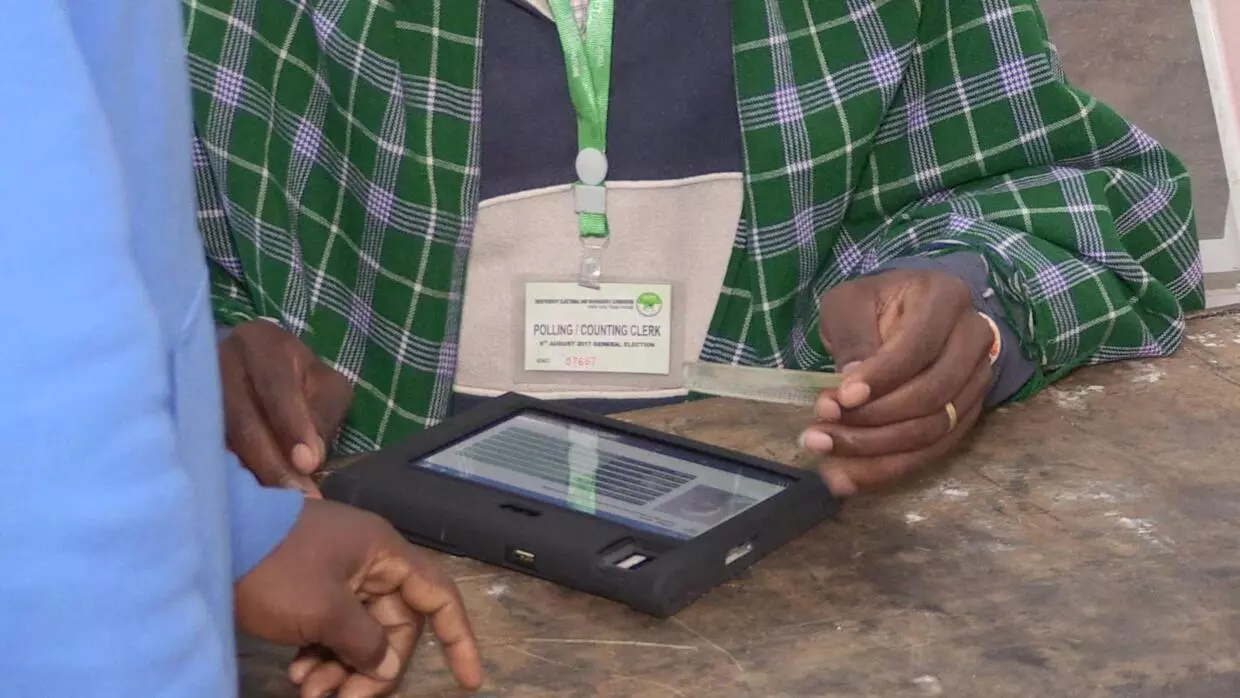On the 30th of January 2020 a three-judge panel of Kenya’s High Court gave out their verdict on the validity of the implementation of the National Integrated Identity Management System (NIIMS), also known as Huduma Namba. Since the inception, Huduma Namba roll out last year concerns were raised by various actors on its effect on human rights.
Despite cry outs from the masses, Huduma Namba was rolled out and citizens were sensitized to enroll out of fear of losing out on access to key services. Passports were not the only thing that residents would miss out on if they lacked the special ID, access to services such as banks and education would be a no-go as well.
While the uproar stalled the rollout for a while, a coalition of stakeholders from the Nubian Forum, Kenya National Human Rights Commission and the Kenya Human Rights Commission, filed a case against the implementation of NIMS. This pressured the parliament to draft the Huduma Namba bill which faced a lot of criticism with the majority claiming it to be inadequate, ambiguous and “too late to the party”.This stretches from the components it poses all the way to the fact that it has been rushed at the same time as the Data protection and privacy policy was still underway proving once again that for most countries “the law does lag behind technology”.
On the court ruling on the 30th of January the court has halted the implementation of Huduma Namba in a 500-page judgment highlighting the following:
- The legal framework on data privacy is “inadequate and totally wanting” hence it can only be a result of a rushed process that did not fully take into account how data will be protected.
- The collection of DNA and GPS were declared unconstitutional and hence the court ordered that they be struck out of the NIIMS data to be collected
- NIIMS is not inclusive of a lot of groups who already face discrimination to gain IDs or citizenship, this applies to communities such as the Somali and Nubian in Kenya.
In line with those observations, the court did give a green light to NIIMS stating that if it meets recommended actions by the court it can resume. According to the court, the threshold for public participation in huduma Namba registration was met and the public had enough time to present views against the petitioner’s argument that the 7 days given for public participation were not sufficient.
The court also stated that collection of data is only intrusive if it’s collected without the consent of the said individuals hence NIMS is not intrusive. However, the court has urged that Huduma Namba can only proceed if a number of requirements are met including the following:
- Enactment of a comprehensive legal framework in line with the constitution that adheres to data privacy and protection is developed.
- Mechanisms are in place to ensure NIIMS does not exclude any section of the Kenyan Population.

The court is set to release the official judgment documents during the course of the coming week for public viewing on each component/recommendation they made. Bernard an officer at the Kenyan Human Rights Commission stated that “It’s not the verdict we expected but it’s good progress” the key concern now is to see how the government will go about implementing the court’s orders in a manner that does not infringe on Kenyans rights. To a lot of other African Countries implementing Digital IDs, the Huduma Namba case has set a precedent on the importance of governments to put data protection and privacy at the core of the- implementation of digital ID systems. In line with this, it has highlighted the need for this process to have sufficient time to ensure frameworks developed meet public participation standards, is inclusive, rational and clearly thought through.
While there are still concerns on how this will work out, it’s important for legislators and government entities to look at NIIMS case as an important signal on how fast digital ID is taking up space but it shouldn’t be an excuse to carry out surveillance, deny rights and most of all deny services to the public. Paradigm Initiative commends the work done by the Nubian Forum, The Kenya Human Rights Commission and partners in pushing the judiciary to take its role in ensuring justice is served.
We also urge the Kenyan Government which passed the Data Protection and Privacy Bill last year November to hasten the establishment of the data protection commission to ensure that the machine starts rolling out soonest. The future is promising if African courts and governments can uphold rights hence we call upon governments to ensure that processes, policies, and laws adhere to human rights, affirms to protecting them and ensuring inclusivity.
The author of this articles, Rebecca Ryakitimbo is Paradigm Initiative’s Digital Rights Program Officer for East Africa


